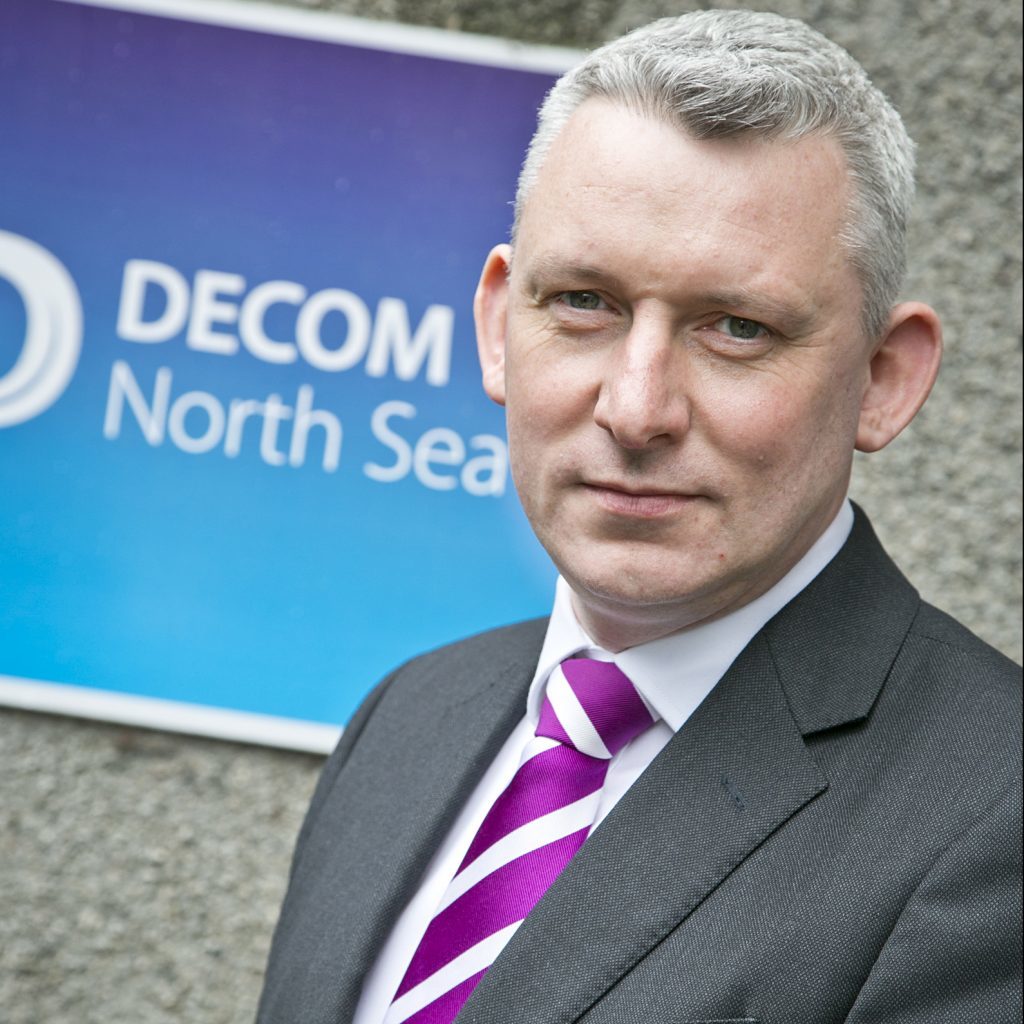
Last week, the Oil and Gas Authority (OGA) published its Decommissioning Delivery Programme – the follow up to its Decommissioning Strategy, which was published earlier this year.
Building upon the Strategy’s high-level overview of the UKCS decommissioning sector, the Programme has provided greater detail regarding near-term priorities in decommissioning, and how these should be delivered. As a strategic partner of the OGA, Decom North Sea awaited the publication of the programme with interest, our role as the single topic, multi region membership organisation will be to continue to work closely with the OGA and support its implementation.
Whilst there are six key elements to the OGA’s Programme, the priorities lie within three areas: cost certainty and reduction; delivery capability models; scope, guidance and stakeholder engagement. Each of these strikes a chord deep within Decom North Sea and I am delighted to see so many synergies between the bodies’ priorities and implementation plans.
Cost Certainty and Reduction
The crucial word here is “certainty”. Anyone interested in decommissioning will know that a number of figures abound, in terms of just how much decommissioning will cost both the operators and the Government. That it will be a considerable amount is not in doubt, but by identifying a cost-reduction goal of at least 35%, the OGA is encouraging what Decom North Sea sees as hugely important – early planning and a focus upon operator engagement with innovative contractors and members of the supply chain
Decom North Sea recently launched its Late Life Planning Portal (L2P2), which is designed to become an online information and communication forum, providing intelligence on past, current and future decommissioning projects at all stages. In addition it provides case studies, cost estimates and good practice between all those involved in the decommissioning process. It is information like this which will help ensure that the OGA can provide consistent and realistic cost metrics and benchmarks in the near future.
Delivery Capability
We know that good planning is critical to the success of any project, and decommissioning is no exception. Planning is inherent in all six elements of the Strategy, but the capability of the UK to successfully tender for UK (and global) decommissioning business will rely heavily upon the supply chain being ready for action.
In order to achieve this, the Programme calls for expert experience from both the oil and gas, and non-oil and gas industries, which Decom North Sea recognises as fundamental to a safe, competitive and globally recognised decommissioning industry. Sometimes the “innovation” in technology is actually the new application of an existing technology, and the lessons learned on any industrial project can benefit number of industries. We champion cross-sector learning, ensuring that this is an element of all our key events, and our membership includes a number of non-oil and gas companies who feel they can bring value to the decommissioning journey.
Delivery capability will also rely upon clear and open communication of upcoming opportunities. These may be 10 or more years hence, but the emphasis both the regulators and Decom North Sea are placing upon late life asset management planning should go a long way to ensuring that information is available well in advance of decommissioning phase, thus allowing the supply chain to ready itself for activity.
Scope, Guidance and Stakeholder Engagement
In a sector as new and complex as decommissioning, it’s vital that evolving scope, regulations and policies are clear and well communicated to industry. It is also absolutely critical that these are understood correctly – and that there are regular checks to confirm that they’re understood and being adhered to.
The OGA Decommissioning Programme is clear that the existing regulatory bodies have a responsibility to do so, and again, this is where I believe our Late Life Planning Portal plays a fundamental part. As a repository for best practice, project timelines and regulatory explanation, this pot of information will play an essential role in supporting the understanding of every aspect of the decommissioning industry.
However, the successful outcome of any programme, strategy or information hub is industry contribution. That input will be critical to a cost-effective, safe and highly efficient decommissioning industry, where the opportunities are maximised.
So much of this in in your hands… make sure you play your part.
Roger Esson is Chief Executive of Decom North Sea
